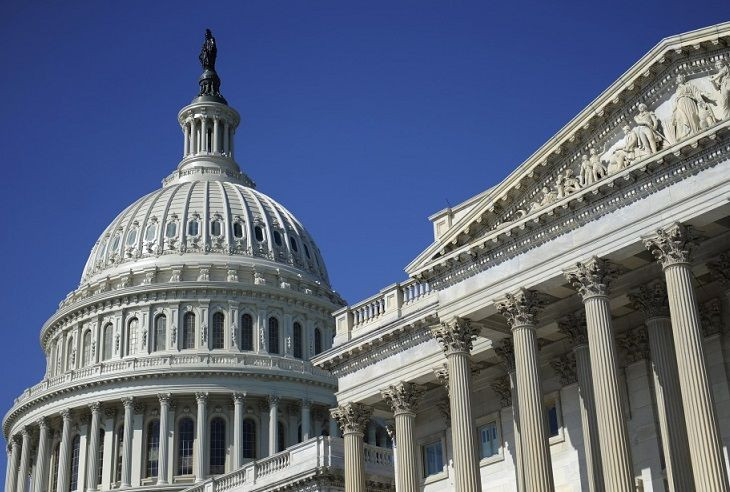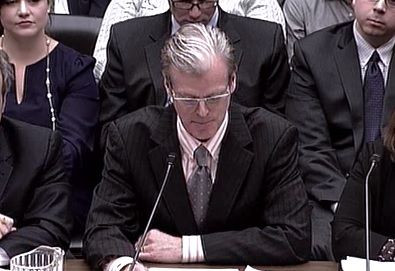Net Neutrality Hearing: Amazon, Etsy, Advocates Criticize ‘Loopholes’ In Republican Plan

Tech industry representatives appeared on Capitol Hill Wednesday to voice concerns over a Republican-backed proposal that would establish open-Internet rules through Congress, thereby undermining the Federal Communications Commission’s ability to impose stricter regulations on broadband companies. Republicans say the draft legislation introduced last week will protect net neutrality and prohibit so-called Internet fast lanes, but opponents say the plan is riddled with loopholes that would allow broadband companies to prioritize some types of content over others.
“We’re concerned that the proposal does not ban all types of discrimination online,” said Chad Dickerson, chief executive of the e-commerce website Etsy Inc., in testimony to the House Committee on Energy and Commerce.
A House hearing to discuss the proposed legislation was held Wednesday morning, led by Rep. Greg Walden (R-Ore.), chairman of the Subcommittee on Communications and Technology. A separate Senate hearing is planned for Tuesday afternoon.
The proposal, introduced by Sen. John Thune (R-S.D.) and Rep. Fred Upton (R-Mich.), would ostensibly ban broadband companies from blocking or throttling content, or charging content providers like Netflix Inc. for fast lanes, but Dickerson said the proposal contains a number of omissions. “For example, under this bill, Internet companies could prioritize their own or affiliated content and services over others,” he said.
The point is especially applicable given that some broadband companies are also content providers, most notably Comcast Corp., which owns NBCUniversal. Critics of the Republicans’ proposal say it essentially allows broadband/media conglomerates to give themselves preferential treatment, which is fundamentally no different from slowing down content from competitors.
Paul Misener, vice president of global public policy for Amazon.com Inc., criticized the proposal on similar grounds, noting a provision in the legislation that would allow broadband providers to offer “specialized services,” which would be exempt from the prioritization rule.
“This could create a huge loophole if, for example, specialized services involved the prioritization of some content and services, just like proscribed ‘paid prioritization,’” Misener said in his testimony, “the only difference being that the content or service prioritized came from the broadband Internet access service provider itself, instead of a third party.”

Misener went on to criticize a provision that would allow broadband companies to engage in “reasonable network management,” which he described a standard caveat to net neutrality but one that should be viewed suspiciously if the claim “undermines prohibitions” of blocking, throttling and paid prioritization.”
Timothy Karr, a senior strategy director for the advocacy group Free Press, said in an interview with International Business Times Wednesday that the term “reasonable network management” is purposely vague. “It’s designed as a loophole,” he said. “It allows companies like Comcast and AT&T to have broad discretion on how they might discriminate, and it strips the FCC of the authority to treat Internet access as a common carrier, which is what we’ve been after from the beginning of the net neutrality battle.”
Wednesday’s hearings came as FCC commissioners prepare to vote on their own net neutrality rules. President Obama supports reclassifying broadband as a utility under Title II of the Communications Act, an idea cable companies like Comcast and Time Warner Cable Inc. strongly oppose. In his opening remarks, Walden said it should be the job of Congress -- not FCC regulators relying on “tools of the Roosevelt-era” -- to craft rules that govern broadband access.
Dickerson disagreed. He said circumventing the FCC would undermine its authority to readily address net neutrality challenges, including those posed by technologies not yet imagined. “Having worked in this industry for most of my adult life, I know how quickly technologies change,” he said. “How can we be sure we’ve anticipated every possible type of discrimination today?”
Christopher Zara is a senior writer who covers media and culture. Got a news tip? Email me here. Follow me on Twitter @christopherzara.
© Copyright IBTimes 2025. All rights reserved.




















